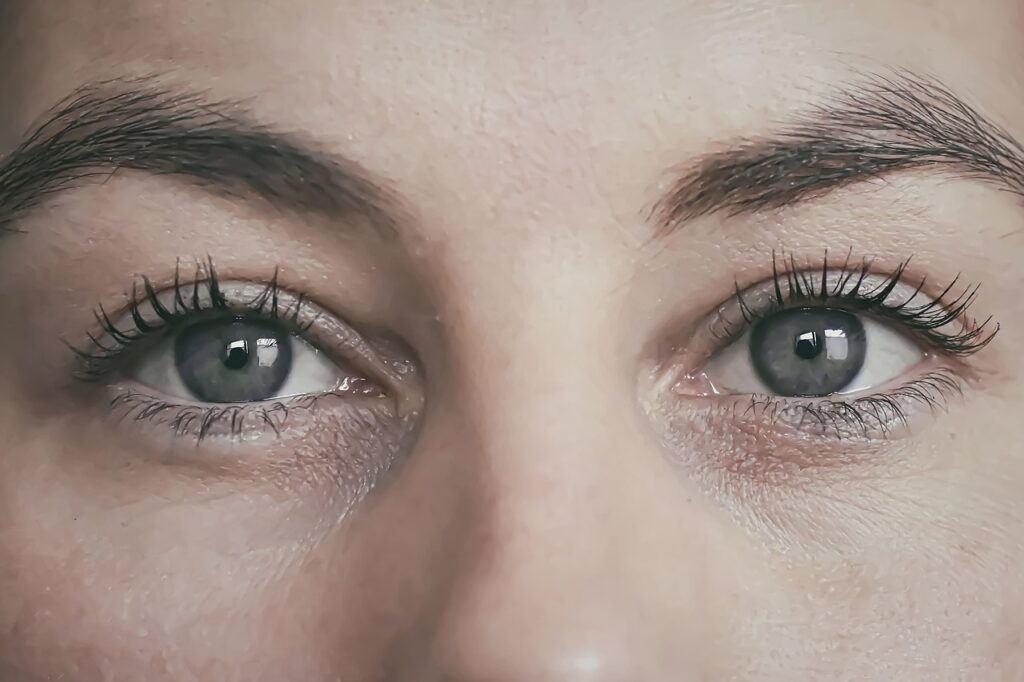Introduction
Dry eyes are a common issue caused by factors like prolonged screen time, aging, dry climates, and contact lens use. While artificial tears provide temporary relief, natural remedies for dry eyes can offer long-term solutions by addressing the root causes.
Rather than relying solely on over-the-counter drops, many people are turning to natural alternatives to restore moisture and comfort. Understanding how the eyes work and what causes dryness is key to finding lasting relief.
Understanding Dry Eyes: Why Natural Remedies for Dry Eyes Work
The tear film has three layers: oil, water, and mucus. An imbalance in any layer leads to dryness. Common triggers include:
- Screen time (reduced blinking)
- Aging (decreased tear production)
- Environmental factors (wind, AC, dry air)
- Medical conditions (autoimmune disorders, allergies)
These issues disrupt the delicate balance that keeps your eyes lubricated. Natural remedies help by either stimulating tear production, restoring oil balance, or soothing inflammation. The following natural approaches have been shown to reduce symptoms and support long-term eye health.
10 Effective Natural Remedies for Dry Eyes
1. Warm Compress
How it works: Melts blocked oils in meibomian glands.
How to use: Apply a warm (not hot) cloth for 5–10 minutes daily.
Using a warm compress is one of the simplest and most effective ways to improve tear film quality. The heat softens hardened oils in the eyelids’ glands, allowing them to flow more freely and coat the eye’s surface properly. Be consistent, and use a clean cloth each time to avoid introducing bacteria.
2. Omega-3 Fatty Acids
Best sources: Flaxseeds, chia seeds, salmon, fish oil supplements.
Why it helps: Reduces inflammation and improves tear quality.
Omega-3s support the production of healthy oil secretions in the tear film. Studies show that people who consume more omega-3s experience fewer symptoms of dry eyes. You can add them to your diet through foods or supplements, ideally with a meal for better absorption.
3. Blinking Exercises
For screen users: Follow the 20-20-20 rule (every 20 minutes, look 20 feet away for 20 seconds).
Full blinks: Close eyes fully to spread tears evenly.
Extended screen use often leads to infrequent or incomplete blinking, which exacerbates dryness. These exercises help reset your natural blink reflex. Setting reminders can be useful, especially during long work or gaming sessions.
4. Hydration & Humidifiers
Drink water: At least 8 glasses daily.
Use a humidifier: Adds moisture to dry indoor air.
Dehydration can reduce tear production, making it essential to drink enough water daily. Using a humidifier — particularly in winter or in air-conditioned environments — helps keep your eyes from drying out. Place it in areas where you spend the most time, such as your bedroom or office.
5. Castor Oil Drops
Benefits: Anti-inflammatory, reduces tear evaporation.
How to use: Apply 1 drop (organic, cold-pressed) at bedtime.
Castor oil has natural lubricating properties and helps stabilize the lipid layer of the tear film, preventing evaporation. Make sure to choose a sterile product formulated for ophthalmic use. Applying it before bed allows it to work overnight without disrupting vision.
6. Aloe Vera Gel
For irritation: Apply a thin layer (pure gel) around eyes (avoid direct contact).
Aloe vera is widely known for its anti-inflammatory and soothing properties. When used correctly, it helps calm irritated skin around the eyes and may reduce symptoms indirectly. Always use 100% pure, preservative-free gel and keep it away from the actual eyeball to prevent irritation.
7. Green Tea Bags
Caffeine & antioxidants: Reduce puffiness and inflammation.
Method: Chill used tea bags, place on closed eyes for 10 minutes.
Green tea is packed with antioxidants and anti-inflammatory compounds. Applying cooled tea bags over closed eyes offers relief from irritation, while also reducing puffiness. It’s a gentle and refreshing treatment — plus, it’s a great way to reuse your morning tea bags!
8. Cucumber Slices
Cooling effect: Reduces dryness and irritation.
Cucumbers are mostly water and contain anti-inflammatory nutrients. Their cooling nature makes them ideal for relieving tired, irritated eyes. Simply place chilled slices over closed eyes for 10–15 minutes. This classic spa technique can be surprisingly effective for dry eye relief.
9. Avoid Direct Airflow
Tip: Position fans/AC away from your face.
Air movement from fans, heaters, and air conditioners can rapidly dry out your tear film. Be mindful of where you sit, especially when working, driving, or sleeping. Redirect airflow or use a shield like glasses to block wind.
10. Hybrid Contact Lenses
For chronic dry eyes: Silicone-hydrogel lenses retain moisture better.
If you wear contacts and suffer from dry eyes, traditional lenses may be worsening your symptoms. Hybrid lenses are designed for comfort and moisture retention. They can be especially helpful for people with keratoconus or other chronic eye conditions, as they allow more oxygen to reach the eye’s surface.
When to See a Doctor
If symptoms persist (redness, pain, light sensitivity), consult an ophthalmologist to rule out conditions like Sjögren’s syndrome or blepharitis.
While natural remedies are effective for many, persistent or severe dry eye symptoms could indicate a more serious underlying issue. Eye care professionals can diagnose and treat complex cases with targeted therapies, such as prescription eye drops or in-office procedures.
Conclusion
Natural remedies can significantly improve dry eyes by enhancing tear production and reducing irritation. Combine these methods for best results!
Adopting multiple strategies can make a noticeable difference. For example, combining omega-3 supplementation with a humidifier and regular warm compresses often yields powerful results. You may need to experiment to find which remedies work best for you, but with consistency and care, long-term relief is possible.
These natural approaches offer more than just symptom control — they support eye health from the inside out. Whether you’re dealing with occasional dryness or managing a chronic issue, incorporating these habits into your daily routine can help restore comfort and clarity to your vision.


2 Comments
Pingback: Blue Light Blocking Glasses: Do They Improve Sleep - WELLNESS ADDITION
Pingback: Benefits of Castor Oil Packs: Detox & Gut Health - WELLNESS ADDITION